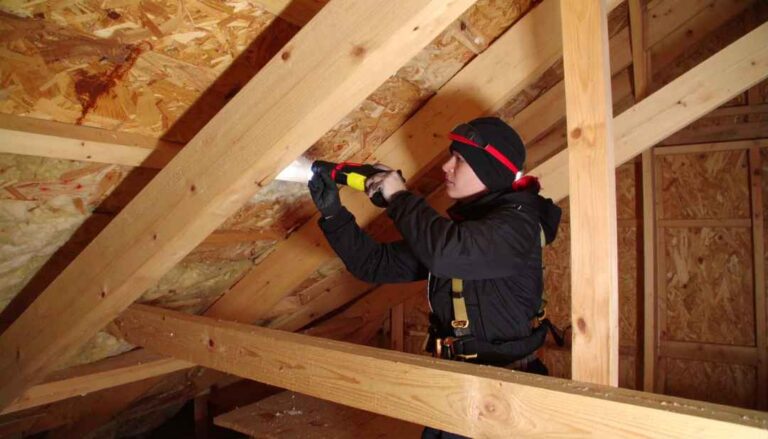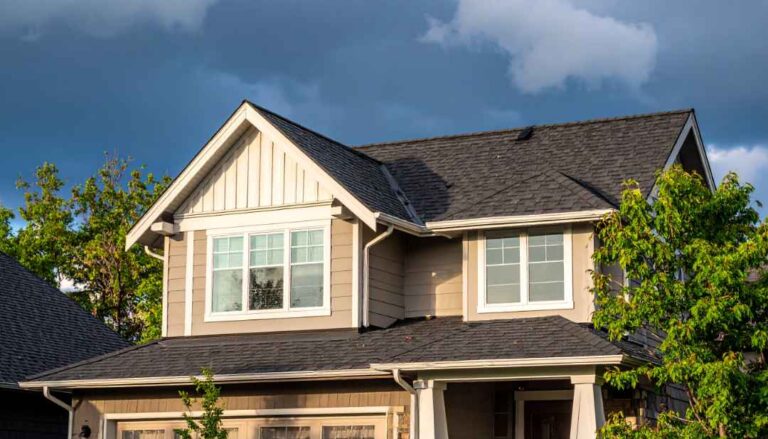The Unseen Aftermath – When Storms Compromise Your Windows
The thunder rumbles away, the lightning flashes subside, and the heavy rain starts to ease. After a particularly intense Chicagoland storm, homeowners instinctively scan their property for obvious damage: missing shingles, bent gutters, or downed branches. But sometimes, a more subtle, yet equally critical, sign of trouble emerges: your once-clear double-pane windows suddenly appear foggy or hazy between the panes of glass.
This isn’t just surface condensation that you can wipe away. This persistent fog is a clear indicator of a broken window seal, a common problem that can be exacerbated or exposed by the dramatic atmospheric pressure changes and sheer force of a severe storm. Ignoring foggy windows is not an option for homeowners in Illinois, as it signifies a significant compromise to your home’s energy efficiency, comfort, and protection.
At Seidel Exterior Group, we’ve been expertly installing and replacing windows for Chicagoland homeowners since 1970. We understand the specific stresses our climate places on window systems and how vital a robust seal is for their performance. This article will explain what a broken window seal is, how storms can contribute to its failure, what it means for your home, and why upgrading to energy-efficient windows is often the smartest long-term solution.
Understanding the Insulated Glass Unit (IGU) and Its Seal
Most modern homes, especially in climates with extreme temperatures like Chicagoland, utilize double-pane (or triple-pane) windows, also known as Insulated Glass Units (IGUs) or thermal windows. These units consist of two (or more) panes of glass separated by a sealed airspace. This airspace is typically filled with an inert gas like argon or krypton, which is denser than air and provides superior insulation.
The integrity of an IGU hinges entirely on its seal. This seal, typically made of a flexible, durable material around the perimeter of the glass panes, is what maintains the airtight, moisture-free environment within the airspace.
- How it Works (When Intact): The sealed airspace (with or without gas) acts as a thermal barrier, slowing the transfer of heat or cold between your home’s interior and the outside. This is key to energy efficiency and preventing condensation on the interior surface of the glass.
What a Broken Window Seal Means (The “Foggy Window” Phenomenon)
When that perimeter seal breaks or degrades, the insulating gas can leak out, and, crucially, moist outside air can penetrate the airspace between the panes.
- Condensation Between Panes: As humid air gets trapped in the IGU, and temperatures fluctuate (especially during a storm or afterwards when temperatures stabilize), the moisture in the trapped air condenses, forming fog, streaks, or water droplets inside the unit. This is the tell-tale sign of a broken seal. You can’t wipe it away because it’s between the glass layers.
- Compromised Insulation: The loss of the inert gas (argon/krypton) and the introduction of regular air significantly reduces the IGU’s insulating value (its R-value). The window effectively reverts to performing like a much less efficient single-pane window.
- Reduced Visibility: The persistent fog or haze obstructs your view, diminishes natural light, and detracts from your home’s aesthetic appeal.
- Potential for Mold/Mildew: While less common than on wet surfaces, prolonged moisture buildup within the sealed unit can, in rare cases, lead to mold or mildew growth if organic materials are present.
- Permanent Staining: Over time, minerals in the condensing water can etch the glass, leaving permanent water spots or a hazy film, even if the moisture eventually dries out.
How Storms Exacerbate or Expose Broken Seals
While window seals can fail due to age, manufacturing defects, or continuous thermal stress, severe Chicagoland storms can certainly play a role in their demise or expose pre-existing weaknesses:
- Rapid Barometric Pressure Changes: The most significant factor. During a severe thunderstorm, especially those with powerful updrafts or downdrafts (like microbursts or squall lines), the atmospheric pressure outside your home can drop or rise rapidly. This sudden pressure differential puts immense stress on the sealed airspace within the IGU. If the seal is already weakened by age or minor damage, this pressure change can be the final straw, causing it to rupture.
- Wind Pressure and Vibrations: Strong winds literally push and pull on your windows. This constant pressure and vibration can stress the seals, causing them to flex and eventually break down, especially if the window frame itself is not securely fastened.
- Hail and Debris Impact: While direct glass breakage is obvious, even impacts from smaller hail or wind-blown debris that don’t shatter the glass can cause microscopic cracks or stress points around the window frame or glass perimeter. These can then lead to seal failure over time or be immediately exacerbated by pressure changes.
- Excessive Moisture Exposure: While not the cause of a broken seal, prolonged exposure to heavy, wind-driven rain can sit on weakened seals or find its way into minute cracks in the frame, accelerating their degradation.
- Compromised Frames: If the window frame itself is damaged by the storm (e.g., warped wood, bent vinyl from impact), it can put undue stress on the glass unit, leading to seal failure.
The Benefits of Upgrading to Energy-Efficient Windows After Storm Damage
If a storm has caused your windows to fog up due to a broken seal, it’s often an opportune time to consider upgrading, rather than just replacing the insulated glass unit (IGU) itself. While IGU replacement can be done, replacing the entire window unit, especially with modern energy-efficient models, offers a host of long-term benefits for your Chicagoland home:
- Superior Energy Efficiency (Long-Term Savings):
- Advanced IGUs: New windows feature state-of-the-art insulated glass units with multiple panes, inert gas fills (argon/krypton), and low-emissivity (Low-E) coatings. These dramatically reduce heat transfer, keeping your home warmer in winter and cooler in summer.
- Reduced Energy Bills: Heat gain and loss through windows account for 25%-30% of a home’s energy use. Upgrading can lead to significant and ongoing savings on your utility bills in Illinois’s extreme climate.
- Improved Comfort: Eliminates cold spots near windows in winter and hot spots in summer, making your home more consistently comfortable.
- Enhanced Durability and Weather Resistance:
- Modern window frames (e.g., high-quality vinyl, fiberglass) are engineered to withstand extreme temperature fluctuations, UV exposure, and the rigors of Chicagoland storms, making them less prone to seal failure.
- Superior locking mechanisms and weatherstripping provide a tighter seal against wind, rain, and air infiltration.
- Many new windows offer enhanced impact resistance for added protection against hail and debris.
- Increased Home Value and Curb Appeal:
- New windows are a highly visible upgrade that significantly boosts your home’s curb appeal and resale value.
- They give your home a fresh, updated look.
- Noise Reduction: The multi-pane construction of energy-efficient windows also acts as an excellent barrier against outside noise, providing a quieter, more peaceful indoor environment.
- Reduced Condensation (Overall): While internal condensation is a sign of a broken seal, energy-efficient windows significantly reduce surface condensation on the interior side of the glass by keeping the glass warmer, even in cold weather.
- Better UV Protection: Low-E coatings block a significant portion of harmful UV rays, protecting your furniture, carpets, and artwork from fading.
- Stronger Warranties: Reputable window manufacturers offer comprehensive warranties on their products, covering both the glass unit (including seal failure) and the frame, providing long-term peace of mind.
Your Next Steps: Consulting the Chicagoland Window Experts
If you discover foggy windows after a storm, or if your windows are showing signs of age and seal failure, it’s time to act.
- Document the Damage: Take clear photos of the foggy window (and any other damage to the frame or surrounding areas).
- Contact Your Insurance Company: If the seal failure appears sudden and directly related to a recent storm, notify your insurance provider.
- Call Seidel Exterior Group for a FREE, Comprehensive Window Assessment!
- Our experienced window professionals will inspect your windows thoroughly, accurately diagnosing the cause of the seal failure or other damage.
- We’ll assess the overall condition of your windows and discuss whether targeted repairs (e.g., IGU replacement if the frame is pristine and new) or full window replacement is the most cost-effective and long-term solution for your home.
- We can help you understand the energy efficiency ratings (U-factor, SHGC) of new windows and select the best options for Chicagoland’s climate.
- If the damage is storm-related, we can assist you with your insurance claim, providing precise estimates and acting as your advocate.
Why Trust Seidel Exterior Group for Your Window Needs in Chicagoland?
For over 50 years, Seidel Exterior Group has been the trusted name for window solutions in the Chicago Metro Area. We provide:
- Local Expertise: We understand the unique demands of Illinois’s climate and recommend windows designed to excel here.
- Comprehensive Diagnostics: We accurately identify the root cause of window issues, ensuring the right solution.
- Wide Selection of High-Quality Windows: We offer a diverse range of energy-efficient windows from leading manufacturers, tailored to your home’s style and your budget.
- Expert Installation: Our skilled, certified installers ensure your new windows are installed perfectly for maximum energy efficiency, weather resistance, and longevity.
- Seamless Insurance Claim Assistance: We simplify the process of working with your insurance company after storm damage.
- Unmatched Customer Service: Your satisfaction and peace of mind are our top priorities.
Clarity, Comfort, and Savings for Your Home
Foggy windows are more than just an eyesore; they’re a clear signal that your home’s thermal barrier is compromised. Whether caused by age or exacerbated by the extreme pressure changes of a Chicagoland storm, a broken window seal warrants prompt attention. It’s often an ideal opportunity to upgrade to modern, energy-efficient windows that will not only restore your view but also deliver significant long-term savings, enhanced comfort, and superior protection against future Illinois weather.
Don’t let foggy windows cloud your home’s performance. Contact Seidel Exterior Group today for a free, comprehensive window inspection and consultation. Let us bring clarity, comfort, and energy savings back to your Chicagoland home.



